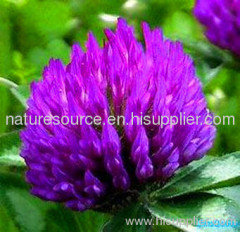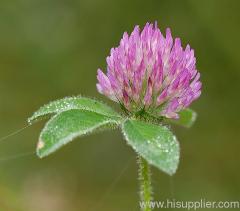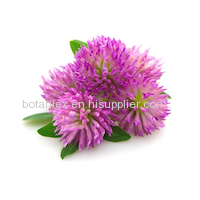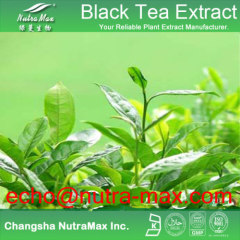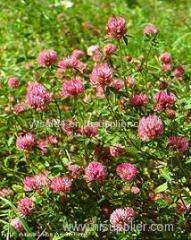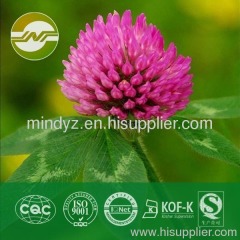
red clover extract isoflavones
10.0~50.0 USD
| Min. Order: | 1 Ton |
|---|---|
| Payment Terms: | L/C, T/T |
| Supply Ability: | 300ton per month |
| Place of Origin: | Hunan |
Company Profile
| Location: | China (Mainland) |
|---|---|
| Business Type: | Manufacturer |
| Main Products: | Instant Tea Powder, Herbal Extract, Green Tea Extract, Chlorogenic Acid, Black Tea Concentrate |
Product Detail
| Means of Transport: | Ocean, Air |
|---|---|
| Production Capacity: | 300ton per month |
| Packing: | 250kg/drum |
| Delivery Date: | 10 days after order |
Product Description
Latin Name:Trifolium pratense
Active Ingredient:isoflavones
CAS No.:85085-25-2
Specifications:8%,20%,40%,42%,45%
Test Method:HPLC
Red clover, a wild plant used as grazing food for cattle and other livestock, has also been used medicinally to treat a wide array of conditions. These have included cancer, mastitis (inflammation of the breast), joint disorders, jaundice, bronchitis, spasmodic coughing, asthma, and skin inflammations, such as psoriasis and eczema. Red clover is thought to "purify" the blood by promoting urine and mucous production, improving circulation, and stimulating the secretion of bile. Recently, specific chemicals in red clover -- known as isoflavones -- have been isolated and tested for their effectiveness in treating a variety of conditions. Although isolated isoflavone products are very different from the whole herb, they have shown promise in the treatment of a number of conditions associated with menopause, such as hot flashes, cardiovascular health, and the bone loss associated with osteoporosis.
Red clover Plant Description
Red clover is a perennial herb that commonly grows wild in meadows throughout Europe and Asia, and has now been naturalized to grow in North America. The red flowers at the end of the branched stems are considered to be the source of its medicinal properties and are usually dried for therapeutic use.
Red clover is a perennial herb that commonly grows wild in meadows throughout Europe and Asia, and has now been naturalized to grow in North America. The red flowers at the end of the branched stems are considered to be the source of its medicinal properties and are usually dried for therapeutic use.
Medicinal Uses and Indications
Red clover is a source of many valuable nutrients including calcium, chromium, magnesium, niacin, phosphorus, potassium, thiamine, and vitamin C. Red clover is also considered to be one of the richest sources of isoflavones (water-soluble chemicals that act like estrogens and are found in many plants).
Red clover is a source of many valuable nutrients including calcium, chromium, magnesium, niacin, phosphorus, potassium, thiamine, and vitamin C. Red clover is also considered to be one of the richest sources of isoflavones (water-soluble chemicals that act like estrogens and are found in many plants).
Treatment
Cardiovascular Health
Menopause increases a woman's risk for developing cardiovascular disease. Supplementation with red clover isoflavones has been associated with a sizeable increase in high-density lipoprotein (HDL) cholesterol, or "good" cholesterol in pre- and postmenopausal women, leading some researchers to believe that these isoflavones may help protect against cardiovascular disease. Other studies, however, have refuted this finding. Interestingly, one recent study found that menopausal women taking red clover supplements experienced a significant improvement in arterial compliance (a measure of the strength and resilience of the arterial walls). Arterial compliance diminishes during menopause and may increase a woman's risk for heart disease.
Menopause
While not all studies are thoroughly convincing, several studies of a proprietary extract of red clover isoflavones suggest that it may significantly reduce hot flashes in menopausal women.
Osteoporosis
Menopause increases a woman's risk for developing osteoporosis (significant bone loss). Some studies suggest that a proprietary extract of red clover isoflavones may slow bone loss and even boost bone mineral density in pre- and perimenopausal women.
Cancer
The isoflavones isolated from red clover have been studied for their effectiveness in treating some forms of cancer. It is thought that the isoflavones prevent the proliferation of cancer cells and that they may even destroy cancer cells. Laboratory and animal studies have found that red clover isoflavones may protect against the growth of breast cancer cells. This is surprising because estrogens (and isoflavones have estrogenic properties) have generally been thought to stimulate the growth of breast cancer in women. Until further research has been conducted and more information is available, the use of red clover isoflavones or other red clover products should probably be avoided in women with a history of breast cancer.
Other Uses
Traditionally, red clover ointments have been applied to the skin to treat conditions such as psoriasis, eczema, and other rashes. Red clover also has a history of use as a cough remedy for children.
Dosage and Administration
Red clover is available in a variety of preparations, including teas, tinctures, tablets, capsules, liquid extract, and extracts standardized to specific isoflavone contents. It can also be prepared as an ointment for topical
application.
Red clover is available in a variety of preparations, including teas, tinctures, tablets, capsules, liquid extract, and extracts standardized to specific isoflavone contents. It can also be prepared as an ointment for topical
application.
Pediatric
Red clover has a history of short-term use as a cough remedy for children. Isolated red clover isoflavone products are very different than the whole herb, however, and are not recommended for children.
Red clover has a history of short-term use as a cough remedy for children. Isolated red clover isoflavone products are very different than the whole herb, however, and are not recommended for children.



